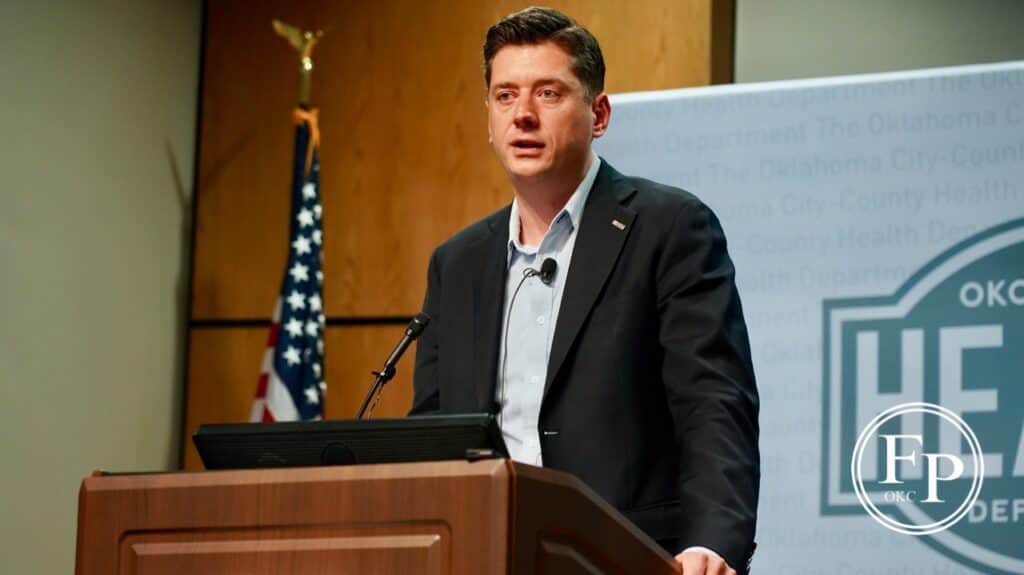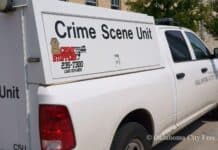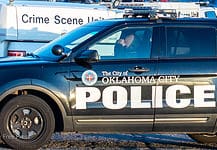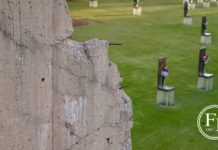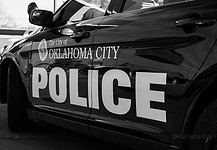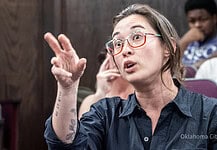Last Updated on April 17, 2020, 10:47 AM | Published: March 28, 2020
Saturday morning, both Mayor David Holt of Oklahoma City and Mayor G.T. Bynum of Tulsa issued clear, simultaneous “shelter in place” orders for the two largest cities in Oklahoma.
It is an attempt to clarify expectations for both populations after a week of confusion that resulted from the vague “Safer at Home” order from Governor Kevin Stitt earlier in the week. The new orders incorporate Stitt’s order and add clarity.
In explaining the order, Holt said: “the avoidance of ‘shelter in place’ terminology has caused confusion in Oklahoma City.”
Ever the diplomat, Holt avoided directly criticizing Stitt.
Clarity for safety
The Governor had issued an evolutionary set of vague orders over several days earlier in the week and called it a “Safer at Home” order which is not a familiar term to most.
In a Facebook video that came out with the new order, Holt explained how he came to the decision to issue a new, much clearer order.
“All week, our legal team has analyzed the Governor’s orders that were applied to Oklahoma City on Tuesday,” said Holt. “They have determined those orders are functionally similar to the “shelter in place” orders in other cities.”
Holt said that 43 of the nation’s 50 largest cities have “shelter in place” orders and the orders make Oklahoma City and Tulsa the 44th and 45th cities to be on that list.
The mayor has been in consultation daily with his Public Health Advisory Group made up of Dr. Patrick McGough, executive director of the Oklahoma City-County Health Department and others in public health and city governance.
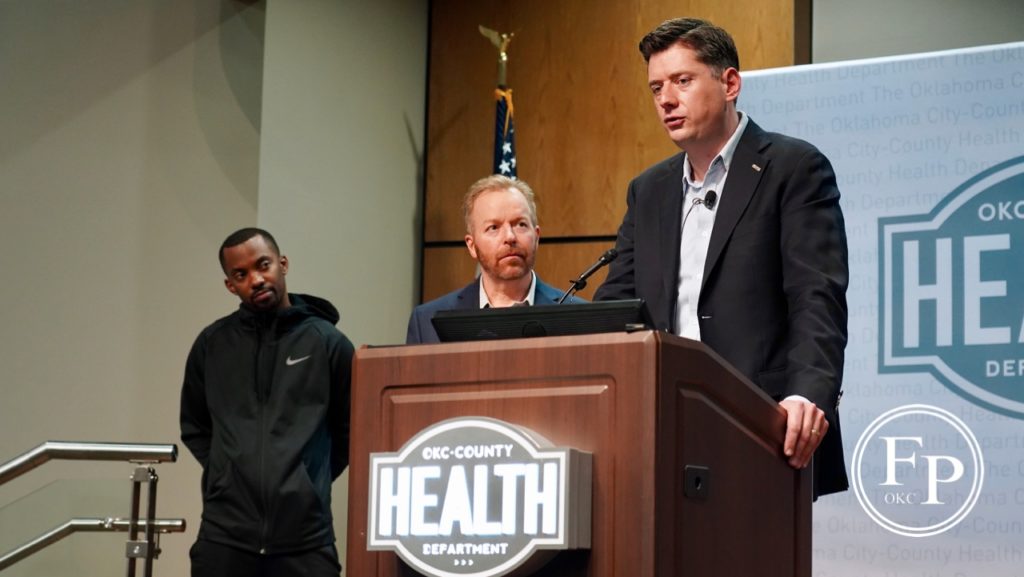
“You, the people of Oklahoma City need clarity,” said Holt. “You want to stop the spread of COVID-19 as much as we do.”
“You need us to speak with a unified voice and a clear voice and give you the public health expert’s direct guidance as to what you should do,” Holt added.
Holt summed up the detailed order as: “You should stay home.”
Not a curfew
Earlier in the week, the Oklahoma City Police Department fielded questions from the public for over a day wondering if residents needed a special permit to be out on the street, which is not true.
This is not a curfew and the police will not stop residents just because they are out.
Instead, Holt said, “You can go out for essential errands such as groceries, take-out food, medicines, doctor visits, and other essential shopping and tasks.”
He said that going to work and exercise were other types of permitted travel under the Shelter in Place order.
Holt emphasized that in a free society, “only you can force yourself to stay in your house. I wield a pen, not an army.”
Details
The information below has been provided by the City of Oklahoma City.
The “Shelter in Place” emergency order is effective from 11:59 p.m. Saturday, March 28 through April 16.
In general, it’s simple:
- Stay home. Exceptions are below on this list.
- You can shop for groceries, medicine, gas, repairs, and other essential goods and services.
- You can go to a restaurant for takeout or drive-thru service.
- You can go to the doctor and take care of other essential needs.
- You can exercise outside, including on sidewalks, trails and in public parks. You can enjoy outdoor activities like long walks, bike rides, and fishing. Green spaces in parks are open. But all playgrounds are closed. City-owned golf courses, fitness courts, dog parks, recreation centers and sports courts (basketball, tennis, volleyball, etc.) are closed.
- You can go to work in an essential job. You can also do business with someone working in an essential job. Those jobs are defined by the State of Oklahoma, using a federal list and one provided by the Governor. Find out more at okcommerce.gov/covid19.
- You can drive, bike, walk and take transit. You don’t need a special ID or a permit. Police aren’t asking people to prove why they’re outside their home.
- You can work from home if you work in a job defined by the State as non-essential. You can also work with someone doing a non-essential job from home. Even if it’s an essential job, employers are encouraged to allow employees to work from home if possible.
- Staff are allowed on site even at closed non-essential businesses for basic tasks like maintenance and security.
- You can check on someone in need.
- You can donate at blood drives, volunteer at food banks and participate in other disaster response activities.
- Staff can be at faith-based sites to record or broadcast services.
- Stay 6 feet away from others, for your safety and theirs.
- Wash your hands before you leave your house, and as soon as you get home.
- You can call 911 if you have specific information about someone violating the order. Police may investigate. Officers will ask for voluntary compliance but may use discretion to issue citations if necessary.
A violation of the City proclamation’s terms would be a class “b” misdemeanor under City Code, punishable by up to 6 months in jail and a fine of up to $750.
Background
The City’s emergency proclamation is authorized under Chapter 15 Article III of City Code and Title 21, Section 1321.9 of Oklahoma Statutes. It was first issued March 16 and was previously modified March 17 and March 25. It will remain in effect until the Mayor signs a proclamation to end it. The Mayor may modify the terms of the emergency for as long as it remains in effect.
The terms of the state and local emergency restrictions are based on fast-evolving guidance from the U.S. Centers for Disease Control and Prevention (CDC), the Oklahoma State Department of Health (OSDH) and the Oklahoma City-County Health Department (OCCHD).
The Mayor’s COVID-19 Public Health Advisory Group meets by teleconference every day to assess the pandemic locally. The advisory group’s members make recommendations for Mayor Holt’s consideration if they become necessary.
The advisory group’s members are:
- Dr. Patrick McGough, group chairman and OCCHD director
- Hieremila Haile, OCCHD epidemiologist
- Dr. Leslie Hudson, epidemiologist and former University of Oklahoma public health faculty member
- Timothy Pehrson, president and CEO of INTEGRIS Health
- Dr. Gary Raskob, chairman of the OCCHD Board of Health and dean of OU’s Hudson College of Public Health
Founder, publisher, and editor of Oklahoma City Free Press. Brett continues to contribute reports and photography to this site as he runs the business.
